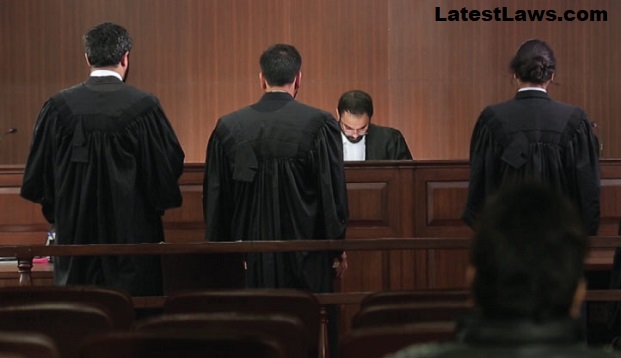The Punjab and Haryana High Court set aside the order of the trial court which convicted the petitioner under Section 302 IPC and Section 25 of the Arms Act for shooting her father and observed that it is not the conviction of the Court of a fact, that an accused person has committed a crime, but the satisfactory evidence of it on record that an offence is proved and compelling evidence was absent in the present case in addition to material discrepancies in the testimonies.
Brief Facts:
The petitioner, a sixteen-year-old filed a revision plea against the order of the trial court, which convicted her under Section 302 of IPC and Section 25 of the Arms Act for shooting her father.
Contentions of the Applicant:
The learned counsel appearing for the petitioner argued that there was no eye-witness to the occurrence and the court had erroneously convicted the petitioner in the absence of any valid and sufficient evidence to link the crime with the petitioner. It was further stated that the alleged extra-judicial confession was uncorroborated and the statements of the family members were not recorded even though they joined in the investigation. It was further contended that the motive behind the commission of the offence was not proved and the petitioner was falsely implicated in the case to disentitle her from inheriting the property given Section 25 of the Hindu Succession Act, 1956. It was further stated that there were material contradictions in the statements of prosecution witnesses. It was further argued that the sentence of five years could not have been given to the petitioner as per Section 15(1)(g)(ii) of the Juvenile Justice (Care and Protection of Children) Act, 2000 which provided the maximum sentence for a juvenile to be three years.
Contentions of the Respondent:
The learned counsel appearing for the state argued that the petitioner was rightfully convicted and the motive behind the same was the objection to her relationship with the co-accused by the deceased. It further contended the FIR was registered as per the version of the petitioner, who herself was trying to misguide and there was reason forthcoming in her defence of false implication.
Observations of the Court:
The court observed that no evidence was brought forth by the prosecution to prove the proximity of the prosecution witness to whom the extra-judicial testimony is alleged to have been given and there was nothing on record regarding the purchase or handing over of the alleged tablets which were given to the deceased by the petitioner.
The court referred to the judgement in Sahadevan vs. State of T.N. which laid down principles that would render an extra-judicial confession admissible as proof that may be the basis for the conviction of an accused. It was further observed that there was no specific mathematical formula that existed to definitively and conclusively determine the veracity of a prosecution or defence case and the same relied on the evidence presented in an individual case, based on the testimonies and demeanour, clarity, credibility of witnesses, and, ultimately, the conscience of the Court evoked by the evidence adduced.
It was further stated that in the present case, there was an absence of any corroborative and forensic evidence which could link the gun allegedly used to the petitioner. It was further stated that there were material discrepancies in the statements of the witnesses and thus they could not be used as substantive pieces of evidence against the petitioner.
The court further relied on the judgment in Sharad Birdhichand Sarda vs. State of Maharashtra which enunciated the law of circumstantial evidence to state that in a case of circumstantial evidence, the Court has to examine the entire evidence in its entirety and ensure that the only inference that can be drawn from the evidence is the guilt of the accused but there were gaps in the evidence in the present case which could not point to the guilt of the petitioner.
It was further observed that mere suspicion or circumstantial doubt cannot absolve the prosecution from its fundamental obligation to establish, beyond a reasonable doubt, the guilt of the accused, for suspicion, regardless of its intensity, holds no evidentiary value. The court stated that it is not the conviction of the Court of a fact, that an accused person has committed a crime, but the satisfactory evidence of it on record that an offence is proved and a piece of compelling evidence was absent in the present case in addition to material discrepancies in the testimonies.
The decision of the Court:
The court allowed the petition and set aside the impugned judgment.
Case Title: Kaur vs. State of Punjab
Coram: Hon’ble Mr. Justice Aman Chaudhary
Case No.: CRR-684-2007 (O&M)
Advocate for the Applicant: Mr. Pradeep Virk
Advocate for the Respondent: Mr. Manipal Singh Atwal, DAG, Punjab
Read Judgment @LatestLaws.com
Picture Source :


























